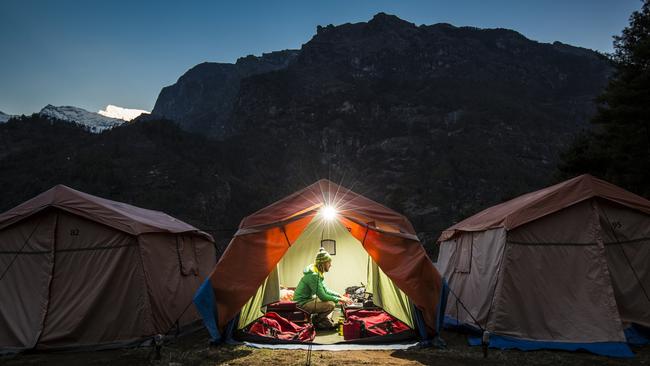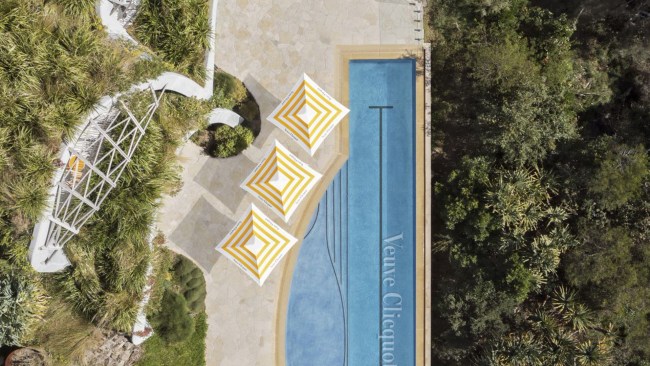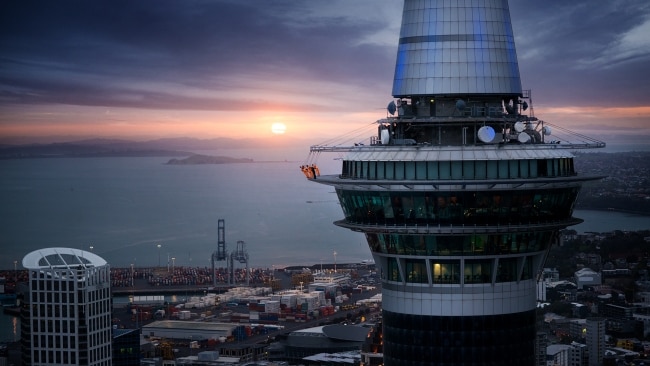Nifty shades of green for a sustainable holiday
Little things can add up to a sustainable holiday.

Elvis Presley was legendary for his excesses but at the Guest House at Graceland, the Memphis hotel near his famous mansion, guests are asked to be a little more restrained than their idol. Those checking in for more than one night will find a note printed on bright green paper that suggests they may like to participate in the 450-room hotel’s Green Program to help reduce its environmental footprint. In return for declining housekeeping services, they’re rewarded with two drinks at the bar. Perhaps it’s the perfect homage to the King — after all, what’s more rock ’n’ roll than messy bedsheets and booze?
Clever sustainability initiatives are no longer confined to opulent luxury lodges and remote eco-adventures. They are blooming right across the hospitality sector as more businesses, including major hotel chains, find ways to incorporate eco-friendly touches into the everyday guest experience, often realising significant commercial savings along the way.
Susanne Becken, professor of sustainable tourism at Queensland’s Griffith University, says: “It’s not a case of upmarket versus cheaper tourism (as) any sort of tourism can do the right things and the wrong things.”
She has mixed feelings, though, about offering direct incentives for sustainable behaviour. “Lots of companies do lots of little things and on a good day that fills me with optimism,” she says. “On the other hand, what I can observe now in tourism is that incrementalism then makes people relax and say they’re doing their bit and actually not much has changed. That’s dangerous because it’s not enough and we know that.
“Incrementalism should be seen as a starting point; (it should be a case of) thinking OK, we’ve all got the (let’s reuse our) towel thing. But what’s next?”
She points to a revolutionary sustainability initiative in Kangaroo Valley, 160km southwest of Sydney. At Crystal Creek Meadows, a collection of cottages on 6.5ha, owners Christopher and Sophie Warren have introduced My Green Butler, a digital adviser that recommends eco-friendly ways to keep the cottages cool or warm during a stay, along with activities that suit the weather forecast. “The owner there … gives people choices,” Becken says. People are advised that alternatives to airconditioning include using the ceiling fan or opening the window.
“The cottages are set up so that it’s all framed as a choice,” she adds. “We measured people who got advice against people who didn’t get advice and the difference in water, energy and gas (usage) was a 30 per cent reduction.
“We do a survey at the end and people absolutely love it.” She reports that one respondent commented, “Gee, I haven’t slept without airconditioning in 11 years and I completely forgot that you can just open the window.”
Becken says incentives are in some way “a nice start” but the Kangaroo Valley case shows that travellers are keen to learn more.
“The 30 per cent saving is donated to a local wildlife charity so people get a warm buzz, it adds to the experience and they feel empowered.
“I often work with hotels and they’re quite scared as they don’t want to bother their customers and that’s why they give incentives, but I think My Green Butler and that whole story (proves) most people are more happy than we think (to behave sustainably).”
Last month AccorHotels Pacific, Australia’s largest hotel operator with more than 200 properties on our shores, was acknowledged with a Banksia Award for large business sustainable leadership. The gong recognised the company’s work in reducing emissions and food waste, and its commitment to positive and sustainable hospitality. Accor is working through the second phase of its Planet 21 program, which is a framework for improving sustainability across six areas. Last year, a global barometer study examined Accor guest habits and expectations of hotels in terms of sustainable development. The study found women and millennials were likeliest to respond to questions in an eco-responsible manner and, of the seven groups surveyed, Germans were the most optimistic and diligent when it came to sustainable development.
Simon McGrath, chief operating officer of AccorHotels Pacific, says Australian consumers are “slightly higher than average in terms of sustainability awareness” and “it’s more important to consumers than ever before but some of the European countries lead the way and have done for many years”. The global report also found that eco-responsibility was a distinctive but not yet decisive factor when it came to choosing one hotel over another.
Yet McGrath sees sustainability as part of a suite of reasons guests may form an emotional connection with a hotel. “If you’re a leader, you’ve just got to keep doing things,” he says. “Sometimes there’s a laconic approach to that engagement (from guests) but I don’t think sustainability is about one fixed mandate across a spectrum … it’s a basket of initiatives that allows people to tailor what they think is right for making the environment better. Someone might not appreciate it but we’ve certainly educated them or made them think about something.”
Sustainability sits at the core of World Expeditions’ adventure itineraries that take travellers off the beaten track to places such as Nepal. “We’ve thought about every aspect of what our impact would be in that environment and we’ve minimised those,” chief executive Sue Badyari says. “It’s impossible to say you’ll have no impact but when you look at the other side of the coin, which is lodge and teahouse trekking where they’re burning wood and there are still issues around waste (then) it’s a completely sustainable proposition for travellers.”
Eco-friendly measures include incinerating waste (in a portable device designed by mountaineer Tim Macartney-Snape), reducing plastic usage, improving porter and animal welfare, and introducing a voluntary litter collection program that will be extended to school groups next year.
Closer to home, the company’s semi-permanent Larapinta Trail campsites have won eco-tourism gongs at the Northern Territory’s tourism awards, the Brolga. The environmental benefit of the semi-permanent structures, an initiative developed in conjunction with traditional owners, is better management of greywater and waste. A fourth eco-campsite, at Rocky Bar Gap near Mount Sonder, will open on the trail next year.
World Expeditions is embarking on an ambitious carbon-neutral project across its itineraries, which Badyari says will be analysed for carbon outputs and what the cost would be to mitigate that and build it into the cost of the trip. About 22 per cent of guests now opt to offset carbon emissions from their air travel when booking a trip. Badyari says the take-up is small “because carbon offsetting isn’t easy to understand”.
One of the easiest ways to travel more sustainably, Griffith’s Becken says, is to choose direct flights “instead of crazy detours because it gives you air points or because it’s cheaper”. She would like to see carbon emissions included on flight booking sites instead of having to track down a separate calculator. “Hopefully in the future they’re together and you can make a good decision,” she says. “Of course people want to feel good about their holiday. They want to do the right thing but they probably don’t have the time to do the research. We need to make it as easy as possible.”



To join the conversation, please log in. Don't have an account? Register
Join the conversation, you are commenting as Logout